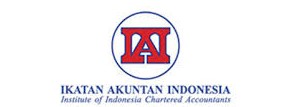Pengaruh Personal Value Terhadap Perilaku Etis Mahasiswa Akuntansi
Abstract
This study aims to provide an overview of the influence of personal values on ethical behavior of accounting students. Sample of this study are the student of the economics faculty of Padang State University. Data was collected by survey using open ended questionnaire, an analyzed by simple linear regression technique The results of this study show that (1) Personal value-Openness to Change has no significant effect on ethical behavior of Accounting Student (2) Personal value-Self-Enhancement has a significant negative effect on ethical behavior of Accounting students (3) Personal value-Conservation has a significant positive effect on ethical behavior of Accounting Student (4) Personal value-Self-Transcendence has no significant effect on ethical behavior of Accounting Student.
References
Adhandayani, A., & Takwin, B. (2018). Pengaruh Self-Enhancement dan Authenticity terhadap Prediksi Diri Masa Depan The Effect of Self-Enhancement and Authenticity to Predict Future. 6(1), 104–117.
Ajzen, I. (1991). The Theory of Planned Behavior. ORGANIZATIONAL BEHAVIOR AND HUMAN DECISION PROCESSES, 50, 179–211. https://doi.org/10.1080/10410236.2018.1493416
Akaah, I. P., & Lund, D. (1994). The influence of personal and organizational values on marketing professionals’ ethical behavior. Journal of Business Ethics, 13(6), 417–430. https://doi.org/10.1007/BF00881450
Alleyne, P., McClean, C. C., & Harper, A. (2013). Examining personal values and ethical behaviour perceptions between accounting and non-accounting students in the Caribbean. The Accounting Educators’ Journal, 13, 47–70.
Azaro, K., Ekasari, K., & Susilowati, K. D. S. (2020). Mengungkap Arti Perilaku Etis Menurut Fresh Graduate Akuntansi. Journal of Applied Accounting and Taxation, 5(2), 127–136. https://doi.org/10.30871/jaat.v5i2.2110
Ball-rokeach, A. S. J., American, S., Review, S., & Dec, N. (1973). Values and Violence : A Test of the Subculture of Violence Thesis. 38(6), 736–749.
Dayakisni, T., & Yuniardi, S. (2004). Psikologi lintas budaya. UMM Press. https://books.google.co.id/books?id=rCMuAAAACAAJ
Feldman, G., Chao, M. M., Farh, J. L., & Bardi, A. (2015). The Motivation and Inhibition of Breaking the rules: Personal Values Structures Predict Unethicality. Journal of Research in Personality, 59, 69–80. https://doi.org/10.1016/j.jrp.2015.09.003
Hariri, & Pradana, A. W. S. (2019). Persepsi Mahasiswa Akuntansi Terhadap Pendeteksian Plagiasi Tugas Akhi. Indonesian Journal of Islamic Education Studies.
Hildayani, R., & Serly, V. (2021). Pengaruh Tekanan, Peluang, Rasionalisasi dan Nilai Etika terhadap Intensi Kecurangan Karyawan: Studi Kasus pada Perusahaan BUMN. Jurnal Eksplorasi Akuntansi, 3(4), 734–748. https://doi.org/10.24036/jea.v3i4.422
Hutahahean, M. U. B., & Hasnawati. (2015). Pengaruh Gender, Religiusitas Dan Prestasi Belajar Terhadap Perilaku Etis Akuntan Masa Depan (Studi Pada Mahasiswa Akuntansi Perguruan Tinggi Swasta Di Wilayah Dki Jakarta). e-Journal Akuntansi Trisakti, 2(1), 49–66.
Indonesia Corruption Watch. (2022a). Hasil Pemantauan Tren Penindakan Kasus Korupsi Tahun 2021 (Nomor April). https://antikorupsi.org/sites/default/files/dokumen/Tren Penindakan 2021.pdf
Indonesia Corruption Watch. (2022b). Laporan Pemantauan Tren Penindakan Kasus Korupsi Tahun 2021 (Nomor April). https://antikorupsi.org/sites/default/files/dokumen/Laporan Tren Penindakan Kasus Korupsi Tahun 2021.pdf
Kartika, A. (2013). Perbandingan Sensitivitas Etis Antara Mahasiswa Akuntansi Pria dan Wanita Serta Mahasiswa Akuntansi dan Manajemen (Studi Empirik Pada Perguruan Tinggi Di Semarang). Kuisioner Sensitifitas Etis, 2(1), 26–43.
Lestari, K. I. D., & Ramantha, I. W. (2019). Persepsi Etis Mahasiswa Akuntansi Atas Perilaku Tidak Etis Akuntan. E-Jurnal Akuntansi, 27, 201. https://doi.org/10.24843/eja.2019.v27.i01.p08
Mubako, G., Bagchi, K., Udo, G., & Marinovic, M. (2020). Personal Values and Ethical Behavior in Accounting Students. Journal of Business Ethics, 174(1), 161–176. https://doi.org/10.1007/s10551-020-04606-1
Odunsi, A. O., Odeniyi, K. O., & Odeniyi, A. O. (2020). Ethical Values and Perception of Accounting Students in outhwestern Nigeria. Global Journal of Management and Business Research: D Accounting and Auditing, 20(2), 28–40. https://www.journalofbusiness.org/index.php/GJMBR/article/view/3293
Oktanisa, S. (2019, Agustus 16). General Electric Diduga Manipulasi Laporan Keuangan US$ 38 M. CNBC Indonesia. https://www.cnbcindonesia.com/news/20190816121319-4-92493/general-electric-diduga-manipulasi-laporan-keuangan-us--38-m
Rini, W. A. S. (2021). Peran Kode Etik Dalam Pencegahan Fraud Pada Auditor Di Lingkungan Badan Pemeriksa Keuangan. Akuntansi dan Keuangan.
Schwartz, S. H. (1992). Universals in the content and structure of values: Theoretical advances and empirical tests in 20 countries. Advances in Experimental Social Psychology, 25(C), 1–65. https://doi.org/10.1016/S0065-2601(08)60281-6
Schwartz, S. H. (2017). The Refined Theory of Basic Values. Values and Behavior: Taking a Cross Cultural Perspective, 51–72. https://doi.org/10.1007/978-3-319-56352-7
Sheehan, N. T., & Schmidt, J. A. (2015). Preparing accounting students for ethical decision making: Developing individual codes of conduct based on personal values. Journal of Accounting Education, 33(3), 183–197. https://doi.org/10.1016/j.jaccedu.2015.06.001
Solmazer, G., Azık, D., Fındık, G., Üzümcüoğlu, Y., Ersan, Ö., Kaçan, B., Özkan, T., Lajunen, T., Öz, B., Pashkevich, A., Pashkevich, M., Danelli-Mylona, V., Georgogianni, D., Berisha Krasniqi, E., Krasniqi, M., Makris, E., Shubenkova, K., & Xheladini, G. (2020). Cross-cultural differences in pedestrian behaviors in relation to values: A comparison of five countries. Accident Analysis and Prevention, 138(April 2019). https://doi.org/10.1016/j.aap.2020.105459
Suyono, N. A. (2017). Analisis Terhadap Perilaku Etis Akuntan Masa Depan. Jurnal Ekonomi dan Teknik Informatika, 5(2), 1–6.







.png)
.png)
